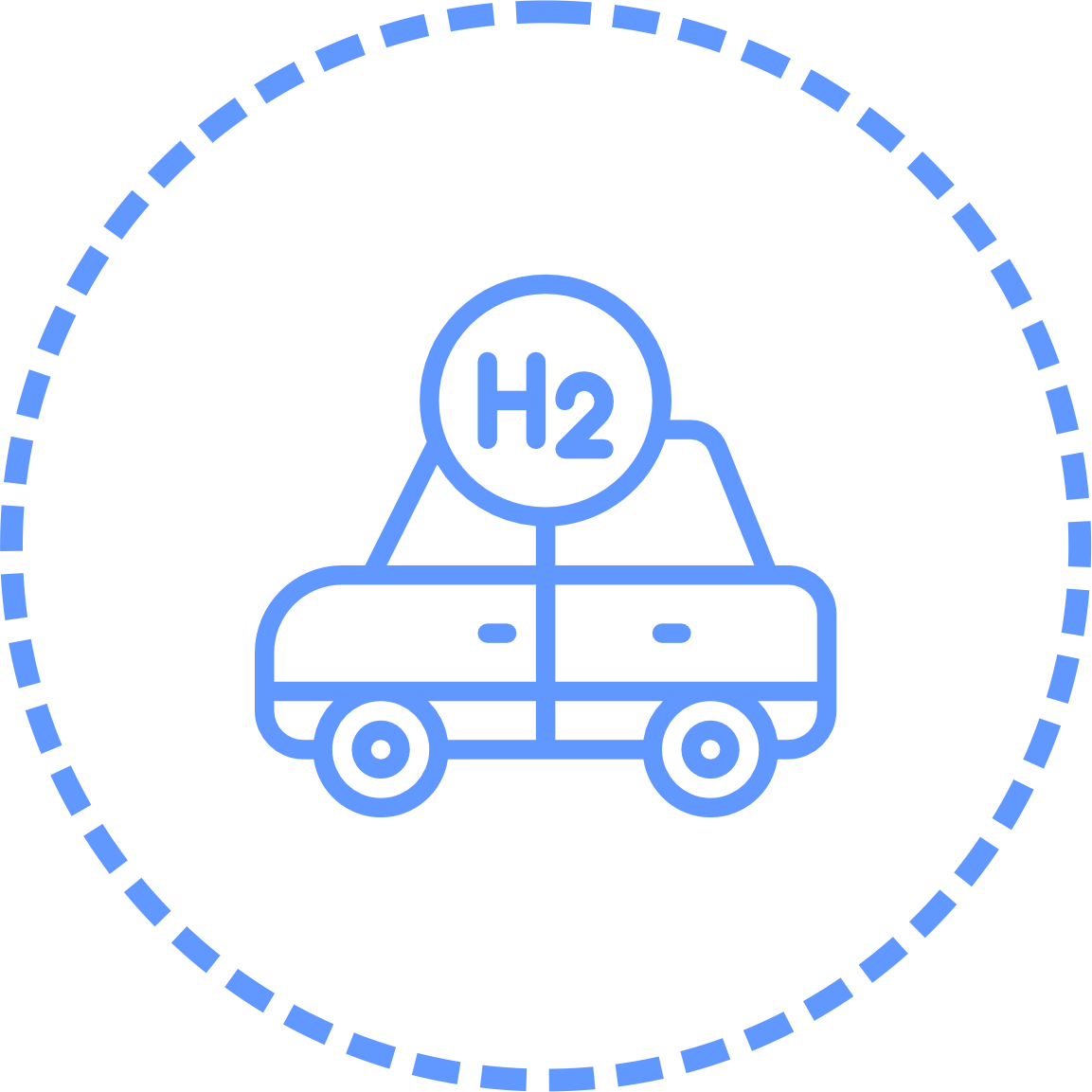The large and increasing amounts of waste electricity from renewable energy sources, as well as wastewater from Biological Treatment or Industrial Uses are the ideal raw materials for renewable Hydrogen.
Transitionally, and up to its movement through 100% H2 ready pipelines, Renewable Hydrogen can be blended as low as 5% wt. in natural gas transmission networks without major modifications to consumer infrastructure and equipment. In this way, existing infrastructure that has not depreciated in value remains beneficial and at the same time the environmental footprint of natural gas combustion is reduced.
Many EU countries are already converting old gas pipelines into 100% H2 ready pipelines, while a large infrastructure program is planning new renewable hydrogen distribution and transmission projects connecting Southern and Central Europe.
Hydrogen is an efficient and safe fuel under compliance with the necessary production and operating protocols for the production plants and distribution networks. Many thousands of kilometers of H2 pipelines have been in operation over the last decades in many countries in the EU and the USA.
Renewable Hydrogen is set to occupy a critical area on the future energy map of the Planet. It is the only environmentally neutral form of energy that can substitute fossil conventional fuels in industrial applications that require the deployment of very high 8 heat loads (steel, ceramics, glass, refining, pasteurization), as its combustion does not release pollutants.
In addition, renewable Hydrogen is an essential raw material for the further development of green fuels and chemical derivatives (E – Methanol, E-SAF, Green Ammonia) in order to transition the Marine, Aviation and Chemical industries to a sustainable future, while it can be stored in fuel cells contributing to urban electrification.



5,000 km of Hydrogen pipelines are already in operation in 2024 and a further 750km of new pipelines have already received an investment decision for construction.




5,000 km of Hydrogen pipelines are already in operation in 2024 and a further 750km of new pipelines have already received an investment decision for construction.
